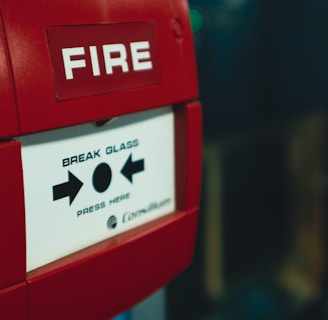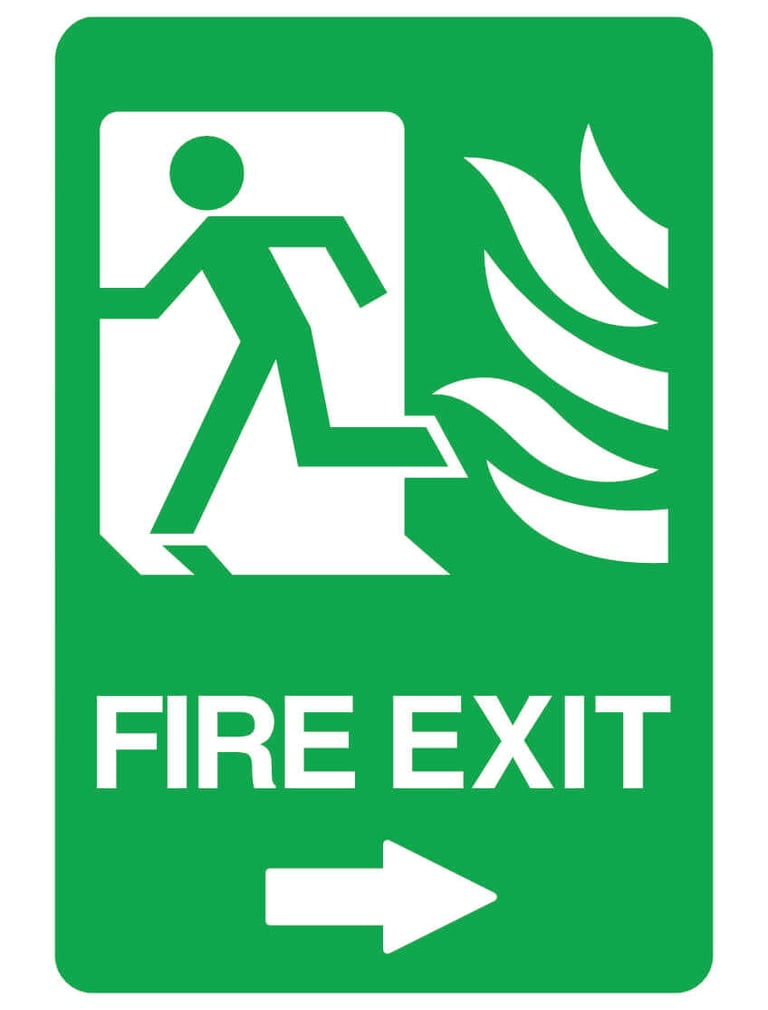
What to Do If a Fire Safety Inspector Visits Your School


If a fire safety inspector from your local fire and rescue authority turns up at the front gate and asks to carry out an inspection of your school, it can feel like a high-pressure situation. However, these visits are a routine and important part of ensuring fire safety compliance in schools and other educational settings.
Not Sure If You're Ready?
Many schools rely on support from third-party fire safety partners to:
Complete fire risk assessments;
Maintain records;
Provide staff training; and
Check compliance with the latest regulations.
Regular audits and proactive maintenance help avoid issues when a surprise inspection takes place.
Types of Notices a Fire Inspector Can Issue
There are three main types of statutory notices that can be issued following an inspection:
1. Alterations Notice
This notice requires the school (as the responsible party) to inform the fire authority before making certain changes to the premises — for example, building works that might impact fire safety.
Example: If you’re planning to renovate a block or change classroom layouts, you may need to consult the fire authority first.
2. Enforcement Notice
This is issued if the inspector finds a failure to comply with fire safety law. It will set out what you must do to fix the issue and by when.
Example: You may be asked to update your fire risk assessment, repair faulty fire doors, or provide better staff training.
3. Prohibition Notice
This is the most serious. It may restrict or stop the use of part (or all) of the school building until serious risks are addressed. This notice is only issued where the inspector believes there’s an immediate risk to life.
Example: If a stairwell has a blocked fire exit and poor lighting, the school might be prohibited from using that part of the building until it’s resolved.
Each of these notices must contain specific legal wording to be valid — but once issued, you must take them seriously. Failure to comply with a notice is a criminal offence.
What Happens After the Inspection?
If a notice is issued, the school will likely be contacted again by the inspector or fire authority. This may involve:
A follow-up visit to check progress;
Ongoing updates requested by the fire authority; and
Further action if the issue is not resolved in time.
You should review any notice carefully and make sure its requirements are fully understood. If you’re unclear, seek professional guidance or contact your local fire authority directly.
How Should Schools Respond to a Fire Safety Inspection?
Here are key steps for school leaders and staff to follow:
1. Ensure the Right Person Is Present
Front-office or duty staff may greet the inspector, but it's important that the Responsible Person (e.g. the headteacher, site manager, or another fire safety lead) is called promptly to accompany them.
Everyone should know who to contact internally if an inspector arrives unannounced.
2. Cooperate Fully
Inspectors have legal powers to carry out their work. Deliberately blocking or obstructing them is a criminal offence and could result in a fine.
You can ask questions and take notes, but always act respectfully and professionally.
3. Be Honest
If you don’t know the answer to a question, say so. Never guess or provide false information. The inspector will appreciate transparency and may help you understand what's needed.
4. Take Immediate Action if a Notice Is Issued
Make sure:
You understand what’s required;
You meet the deadlines given; and
You document all actions taken.
Failure to comply with a notice can lead to prosecution, fines, or — in serious cases — imprisonment.
Final Note
While an unannounced inspection may be stressful, it’s also a crucial part of maintaining a safe and legally compliant environment for pupils, staff, and visitors. Understanding your obligations under the FSO and related regulations will help ensure you're prepared—and confident—when the inspector calls.
Fire inspections are not necessarily a sign that something is wrong. In fact, they form part of the wider safety system underpinned by UK legislation, including:
The Regulatory Reform (Fire Safety) Order 2005 (FSO);
The Fire Safety Act 2021; and
The Fire Safety (England) Regulations 2022.
This guide outlines what schools should expect during a fire safety inspection and how to prepare.
Does Fire Safety Legislation Apply to Schools?
Yes. The inspection regime applies to all non-domestic premises, which includes schools, academies, nurseries, and colleges.
The Fire Safety Order covers:
The school buildings;
Common areas, such as corridors, stairwells, entrances, and escape routes;
External walls, including windows, doors, cladding, and balconies; and
Fire doors between classrooms and corridors or communal spaces.
These inspections may cover any building used by staff, pupils, or the wider school community. If you manage any residential boarding facilities or school-owned flats, these too may fall under the Fire Safety Order if they contain two or more dwellings and shared common spaces.
Who Are the Inspectors?
Fire safety inspections are usually carried out by an authorised officer from your local fire and rescue service.
They may arrive:
As part of a scheduled audit programme;
Following a complaint, tip-off, or safety concern raised with the fire service; and
In response to a recent incident or pattern of risk in the local area.
These officers have legal powers to enter your school for the purpose of inspecting fire safety compliance under the FSO.
Tip: You can politely ask to see their ID and written authority before allowing access. By law, inspectors must provide this if asked.
What Can Fire Inspectors Do During a School Visit?
Once inside, inspectors can carry out a full audit of your fire safety arrangements. Their powers include:
Asking questions to understand how your school complies with fire safety law;
Identifying the "Responsible Person" (usually the headteacher, site manager, or facilities lead);
Requesting documents, such as:
Your current fire risk assessment;
Training records for staff;
Evacuation procedures;
Maintenance logs for fire alarms, extinguishers, and emergency lighting.
Any fire safety policies or manuals
These documents may be requested in either paper or digital format. Schools in England are also expected to meet the record-keeping standards outlined in the Fire Safety (England) Regulations 2022.
Inspectors may also physically check:
Escape routes and fire exits;
Fire doors and their condition;
Fire alarm systems;
Emergency lighting; and
Signage and safety notices.
What Can Inspectors Do During an Inspection?
Fire safety inspectors have the power to:
Request documents such as your school’s fire risk assessment, maintenance logs, fire evacuation procedures, or training records;
Take samples of materials or substances on site to assess fire resistance;
Inspect or dismantle items that could pose a fire risk, where necessary;
Access digital files, including plans and records for buildings — especially in the case of high-rise or complex school buildings; and
Ask any staff member to assist them, not just the designated Responsible Person (usually the headteacher, site manager, or SBM.)
The inspector can test materials or, in rare cases, destroy faulty or dangerous items — but only if necessary and after consulting the appropriate person on site.
Best Practice During an Inspection
Fire inspections are professional processes, not adversarial ones. You don’t need to feel intimidated. Here’s how to handle the situation well:
Be polite, open, and honest;
If you don’t know the answer to a question, say so—never guess or provide incorrect information;
Ensure the Responsible Person or a senior site lead is available to walk the inspector through your policies and processes;
Keep your key fire safety documents up to date and easily accessible; and
Don’t delay or obstruct the inspection, as this can lead to enforcement action.
Remember: Inspectors are there to help keep people safe. If they raise concerns, treat it as an opportunity to improve your systems.


If you would like support and guidance regarding your fire safety provision , please contact Handsam's client support team via info@handsam.co.uk.
We look forward to hearing from you.
Office 27, East Moons Moat Business Centre
Oxleasow Rd, Redditch B98 0RE
Phone: 0333 207 0737


